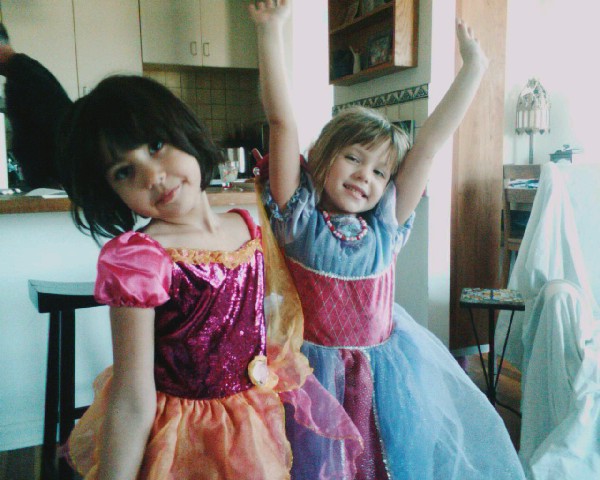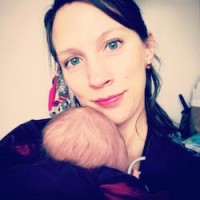I loved Kate Bartolotta’s recent blog, which brought up the “taboo” subject of femininity.
God forbid that the modern day woman be feminine.
The strong, bold, contemporary woman seems to either shirk or embrace her inner lady.
I think a lot of this has to do with the fight that our female ancestors waged in order to be taken seriously in areas of “masculine” authority such as politics and, well, basically anything other than child-rearing or housekeeping. Yet limiting ourselves to this narrow view of the feminist woman as not traditionally feminine is not practicing true feminism.
I love, for example, reading thought-provoking elephant journal articles—and I also subscribe to Vogue. I adore wearing a bright, new shade of lipstick—and I frequently go out to lunch in jeans and a fresh face. I delight in wearing my favorite, fancy dress—and I relish sweating my butt off in my power vinyasa class. I consider myself to be a modern woman—a woman who has embraced the dichotomies of what it means to be masculine and feminine and has begun to explore all of the many shades of grey in between.
I don’t think that women of years gone by shed blood, sweat and tears so that I feel ashamed of shedding my own, lest I be considered weak or womanly (as if these two are synonymous). Is it weak to show emotion? For that matter, is it feminine?
While I might be the sort of girl who occasionally wears red lipstick and high heels, I also don’t like crying in public; or, if I’m being honest, crying in private—and I don’t think either has anything to do with the quality of the state of my womanhood. This snapshot of a powerful woman as someone who wears pantsuits with her heart firmly left off the sleeve is very Anna Wintour (speaking of Vogue)—and I find this visual of the modern-day woman to be more archaic than Cinderella.
I don’t like crying in public because I have issues surrounding showing my vulnerability. I like wearing red lipstick because I think it’s fun and sexy (and I consider owning my sexuality to be a principle in powerful feminism). Still, when my daughter showed a distinct interest in Cinderella and other princesses, I did wonder if I was parenting her improperly—for about two seconds.
I didn’t like Barbie growing up, but I loved Disney movies. I also loved playing catch with my dad and family hikes—and if I limit my daughter’s toy or taste intakes because I’m afraid something is classically girly, then I’m limiting her just as much as if I didn’t expose her to this broadly tinted spectrum of gender-unspecific shades. Ultimately is such limited exposure serving her or am I merely serving my own intellectual needs for “equality?”
Equality like this quickly turns back into stereotype.
I’m a woman with a flaring temper, not a cute, modest, shy little thing who sits coquettishly waiting to be spoken to. Rather, I strike up conversations and easily fly off the handle. I admire women who have the self-control and stability to be fragile in this “intrinsically” feminine manner that isn’t inherent to me at all, but I don’t for one minute think that my fiery personality is less feminine, nor is it more feminist.
It seems that women think that we have to list our heroes as either Katharine or Audrey Hepburn. When did they become competitors? (For your information, Audrey Hepburn wore pants well and broke a lot of intellectual ground.)
Women will never be free from either masculine scrutiny or from their own as long as they ignore this full range of the feminine—as long as they insist on not categorizing both themselves and others.
So when my daughter decided she loved to listen to A Dream is a Wish Your Heart Makes, I threw her a Cinderella-themed party—because my dream is that my daughter’s life not be defined by her sex but enhanced by it.
Being a woman is fun.
I wouldn’t trade being a girl for anything in this world—and I also won’t let anyone in this world tell me what being a girl is—or isn’t.
Like elephant Enlightened Society on Facebook
Ed: Brianna Bemel











Read 8 comments and reply